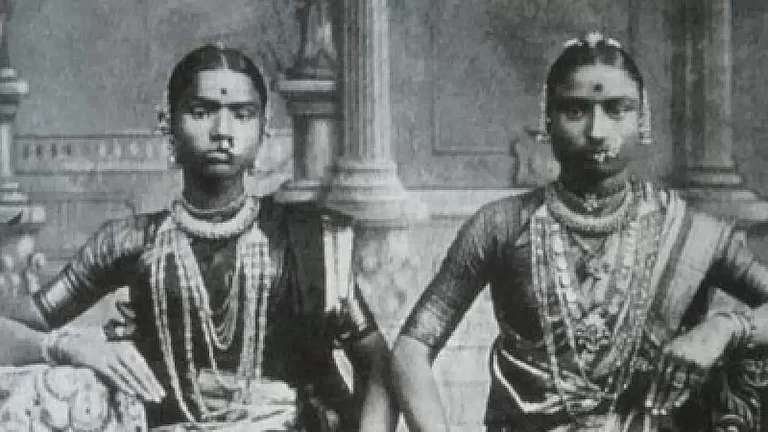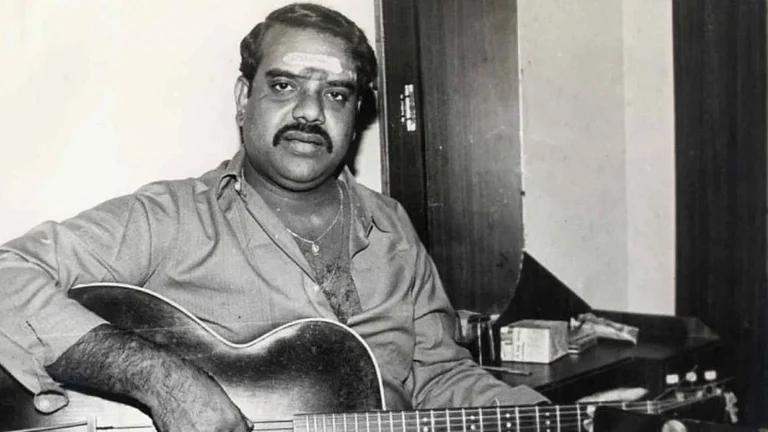The release of the Hema committee report on sexual harassment and other issues in the Malayalam film industry has sparked a storm that is shaking the public sphere in Kerala. So far, two big names in the industry have had to quit their positions following allegations of sexual harassment. Director Ranjith has resigned as Chairman of the Chalachithra Academy and actor Siddique has quit from the position of general secretary of the Association of Malayalam Movie Artists (AMMA), the organisation that is perceived to be the power centre in the industry. More women are now revealing names of their harassers, and some are disclosing harrowing experiences without revealing names.
It all began with the disclosure by Bengali actor Sreelekha Mitra on Friday, August 23 that director Ranjith tried to molest her in 2009 when she came to join his movie ‘Paleri Manikyam: The Story of a Midnight Murder’. She described how he touched her bangles and tried to caress her hair and neck. She left the room and was traumatised the whole night, she recollected in an interview given to a television channel. Sreelekha’s association with Malayalam cinema ended after this incident. Ranjith denied the allegations--which came within days of the release of the Hema committee report-- claiming that they stemmed from a role being denied to her. As calls arose for Ranjith’s removal as Chalachithra Academy Chairman, Cultural Minister in the Left Democratic Front (LDF) government Saji Cheriyan stated that Ranjith was a talented filmmaker, and that action would be taken only if the allegations were proved. However, as protests continued unabated on social media with supporters of the CPM-led LDF government also joining in, Ranjith announced his resignation on Sunday. According to sources, Chief Minister Pinarayi Vijayan demanded Ranjith’s resignation, realising the damage being done to his party and the government. Sreelekha Mitra later told the media that she wants a public apology from Ranjith and that she would cooperate if there was an investigation into the matter.
The allegation raised against actor Siddique on Saturday by actor Revathy Sampath was more catastrophic. “I was trapped, and he raped me,” she told the media without concealing her identity. The incident happened in 2016 when she was only 21 years old. This is not the first time that Revathy Sampath has raised this allegation against Siddique. She accused him of rape in 2019, but it did not get media attention except for being carried by The News Minute.
Siddique, who convened a press conference on Friday to explain AMMA’s response to the Hema Committee report, had to quit as the organisation’s General Secretary within 48 hours. During the press conference, Siddique expressed “shock” over the findings of the Hema Committee. He stated that such incidents of sexual harassment had never come to the notice of AMMA and that they were “one-off incidents”. He also said that AMMA welcomed the report and would support any action based on the same.
Junior artist Jubitha Andy has raised an allegation against Idavela Babu, a former office bearer of AMMA, who asked for sexual favours when she approached him for a membership in the actors’ body. Although Idavela Babu has not acted in films recently, his position in AMMA made him a significant figure in the industry. AMMA maintains a very high membership fee—one lakh or more. According to Jubitha, Babu demanded sex if she could not pay the amount for membership.
The new generation of actors are also not free of accusations. Sonia Malhar, a young actor, has raised an allegation against a ‘young superstar’ that he hugged her from behind when she came out of the washroom in a hotel. When she protested, the ‘young superstar’ apologised to her. Sonia Malhar did not disclose his name so as not want to open that unpleasant chapter again.
In addition to these revelations, old allegations have returned in the new MeToo wave in Malayalam cinema. Tess Joseph, a casting director/producer, disclosed that actor-turned-politician and sitting MLA of LDF Mukesh made sexual advances to her 26 years ago while she was working as a producer of the Malayalam version of the Crorepati quiz show, for which Mukesh was the anchor. Though she disclosed this in 2018 on Twitter, it has surfaced again now, putting the government in the dock. The Youth Congress organised a protest march to Mukesh’s residence, demanding his resignation.
The Relevance of the Hema Committee’s Findings
For many, the Hema committee findings are neither shocking nor surprising, as the issues highlighted in the report are already known. However, the committee's significance lies in its documentation of known facts as an official record. It is an acknowledgment of the elephant in the room. While Malayalam cinema often produces politically correct films, the report documents that demanding sexual favours has become a norm rather than the exception. Women who testified before the commission recounted the horror of “midnight knocks” on their doors, which were described as forceful and intrusive. The report states that on many occasions, women feared that the door would collapse and that men would forcibly enter their rooms. This pervasive fear necessitates that women take family members with them to work to ensure their safety.
The report also exposes the appalling working conditions for women. Almost all women interviewed by the committee reported a lack of basic facilities, such as toilets and changing rooms.
Junior artists were reluctant to speak to the committee despite repeated attempts. The commission almost submitted the report without their testimonies, but the government insisted that their voices be included. Eventually, the committee managed to speak with two junior artists, who reported receiving 'strict instructions' not to cooperate. Additionally, a WhatsApp group created by the committee to discuss dancers' issues saw no participation, with members silently leaving the group. Despite the group being initiated by a former High Court judge, women remained too frightened to speak out.

The committee found that even young girls and beginners face harassment and are pressured for sex. The report emphasises that no other workplace requires women to bring their parents for safety. It also found that women fear severe consequences, including threats to their lives and their families, if they report sexual harassment to the police. Even when provided with caravans for changing costumes, women remain distrustful due to concerns about hidden cameras. The statements from women in cinema highlights a profound lack of trust, a persistent state of fear, and extremely unfavourable working conditions.
What is the LDF government’s stand?
While the Hema Committee report has become a focal point of discussion in Kerala, it is clear that the government is reluctant to address the grievances highlighted by the women in cinema. The committee submitted its report in 2019, but the government took nearly five years to release it. Chief Minister Pinarayi Vijayan attributed the delay to technical reasons and stated that Justice Hema herself insisted that the government should not release the report considering the privacy of the individuals who testified. The Chief Minister also noted that the government had to reject RTI requests for the copy of the report for the same reason. The Information Commission later rejected an appeal for the report’s release in 2020. However, after a prolonged legal battle, the commission overruled the earlier decision and ordered the government to release the report in July 2024--the triumph of a handful of media persons and activists.
Social media is abuzz with criticism of the government for sitting on the report and failing to implement its recommendations. T.B. Mini, a High Court lawyer assisting with the prosecution in the case involving the abduction and assault of an actor, said, "The question is not about the delay in releasing the report, but about the government’s silence and inaction for four and a half years." Advocate Mini also criticised the Cultural Minister’s statement that he had no time to read the report, calling it an insult to the women of Kerala.
Furthermore, many believe the committee's formation itself was flawed. "This committee was formed under an ordinary executive order and lacks the powers of a commission," said Advocate Harish Vasudevan. "The government should have established a commission under the Commission of Enquiries Act,” he added. Such a commission has the power of a civil court and requires the report to be tabled in the Assembly along with an action taken report. Advocate Mini alleged that the government deliberately chose to form a committee in the place of a commission to protect powerful figures in the industry.
Additionally, the government has not explained the process for omitting certain paragraphs from the report. Following the Information Commission’s ruling, the government issued an order on July 18 outlining which portions of the report should remain confidential. However, when the report was released, additional paragraphs were missing. "Paragraphs 97 to 108 were not included in the list of confidential sections as per the July 18 order, so they should have been part of the report," said Advocate Vasudevan. "Such omissions cannot be made arbitrarily. The government must explain the process followed," he added.
The government has maintained the position that action would be taken if women registered complaints. Once again, the burden is placed on the shoulder of women, who were scared to disclose their problems even to a committee headed by a former judge.
Senior actor Urvashi has called for an immediate meeting of AMMA to address these issues. The Women in Cinema Collective (WCC) has stated that the findings of the Hema committee report should not be used to undermine women. They emphasised that using such information to attack female professionals was a continuation of patriarchal strategies. "When civil society recognises that women are victimised in their workplaces, we cannot stand by while elements of society use that information to demean female professionals. This only reflects the attitudes of those who seek to discredit women in this industry," the WCC stated on social media.



























